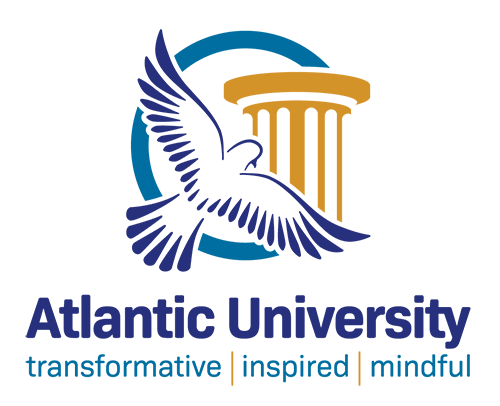At Atlantic University, we understand that you might have questions. Below are answers to some of the most common questions we receive, categorized to help you find the information you need quickly and easily.
You can reach us via email at info@atlanticuniv.edu or call us at (phone number). More contact information can be found on our Contact Us page.
Atlantic University is primarily an online institution, but our administrative offices are located in Virginia Beach, Virginia.
While Atlantic University does not offer traditional financial aid, we provide several scholarship opportunities annually. Details and application guidelines are available on our Scholarships page.
Tuition varies by program and course type. Please visit our Tuition page for detailed information on course and program fees.
You will need a reliable internet connection, a computer capable of running modern web browsers, and basic peripherals such as a webcam and microphone for live sessions.
Yes, all of our courses are offered online to provide flexibility for our students, allowing them to study from anywhere in the world.
Yes, Atlantic University offers non-credit courses and workshops for personal enrichment and professional development. These do not require formal enrollment in a degree program.
Atlantic University offers a variety of graduate programs focused on holistic education, including Master’s degrees and graduate certificates. Detailed information about each program can be found under the Programs section of our website.
Admission requirements for graduate programs include a bachelor’s degree from an accredited institution, a minimum GPA of 3.0, letters of recommendation, and a personal statement. Some programs may have additional requirements, which are listed on our program-specific pages.
You can apply to our programs through the Admissions section of our website. Choose your desired program and follow the step-by-step instructions for submitting your application online.


